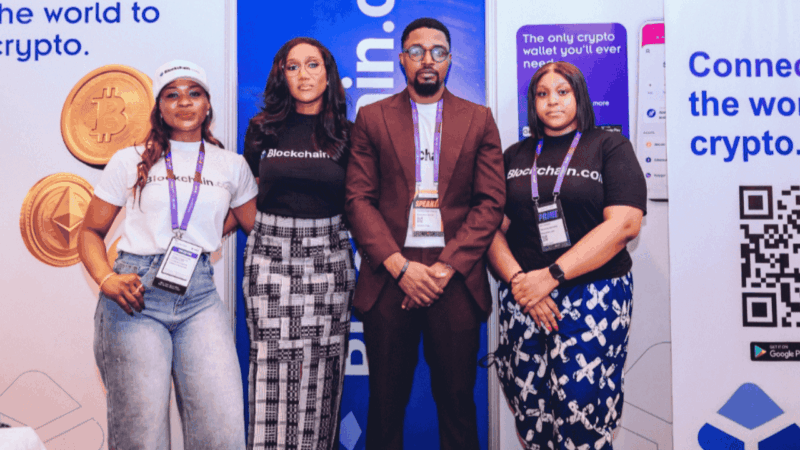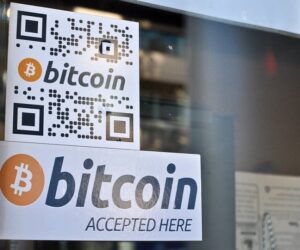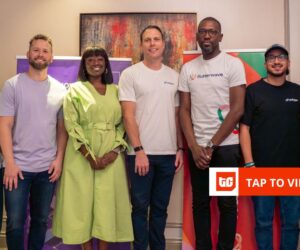Blockchain.com’s Africa team met with journalists in Lagos on Tuesday, October 14, 2025, to outline the company’s renewed commitment to the Nigerian market, one of its largest and most active user bases in the region.
The engagement marked the firm’s first major media interaction in the country since setting up a physical office in February this year. The parley affords the company the opportunity to strengthen its relationships with local stakeholders and reaffirm its long-term interest in the region’s fast-growing crypto economy.
After more than a decade of operating across continents, Blockchain.com, founded in 2011 as a Bitcoin explorer, has seen a 100% growth since establishing a physical office in Nigeria. For a company that has played a defining role in the evolution of digital finance, the move signals a deeper commitment to Africa’s most vibrant crypto market.
But the question is simple: why now?
Nigeria has long been one of Blockchain.com’s most active markets in the region. Even without an on-ground presence, Nigerians in their numbers have used its wallet and trading tools. Over time, the country’s growing crypto culture, driven by a young, connected, and financially curious population, made it impossible to ignore.
“We’ve always known how important Nigeria is to our global story,” said Owenize Odia, Blockchain.com’s General Manager for Africa. “But we wanted to do things properly, with local expertise, regulatory engagement, and compliance from day one. Now, the timing is right.”

That timing is shaped by two key factors. First, Nigeria’s position as one of the leading crypto markets globally and a gradual shift in regulatory tone, with the Securities and Exchange Commission (SEC) providing more structure and clarity around how virtual asset service providers should operate.
“The truth is, Nigerians were already using Blockchain.com,” said Michael Emeeka, the company’s Head of Business and Customer Operations in Nigeria. “But they couldn’t access everything because we weren’t officially here. Once we launched, our broking volume grew by 100% within months. It showed that users were waiting for us to show up.”
Blockchain.com’s Nigerian expansion stands on one clear pillar: compliance. In an industry often marked by grey areas, the company is leaning into regulation as a competitive edge.
“We take compliance seriously,” said Serena Braide, Blockchain.com’s Compliance MLRO Officer for Nigeria. “From KYC and due diligence to real-time transaction monitoring, we follow global standards such as FATF guidelines. Every customer is screened and monitored to ensure we meet international expectations.”
Even before hiring locally, the company engaged the SEC to ensure its operations aligned with Nigerian requirements. “We wanted regulators to know who we are and what we stand for,” Odia said.
Blockchain.com already holds licences in 35 U.S. jurisdictions and applies the same frameworks in Nigeria. According to Braide, this approach is as much about governance as it is about trust.
“When customers see your name on the SEC’s list, it builds confidence,” she said. “They know their funds are safe. And for us, operating as if we’re already licensed means we don’t cut corners.”
Odia added that licensing also offers operational freedom. “Once you’re licensed, you can market openly, partner confidently, and operate transparently. It’s not just paperwork; it’s credibility.”
Beyond trading, Blockchain.com is making crypto practical
For Blockchain.com, regulation is just one side of the coin. The other is utility — making crypto useful beyond speculation.
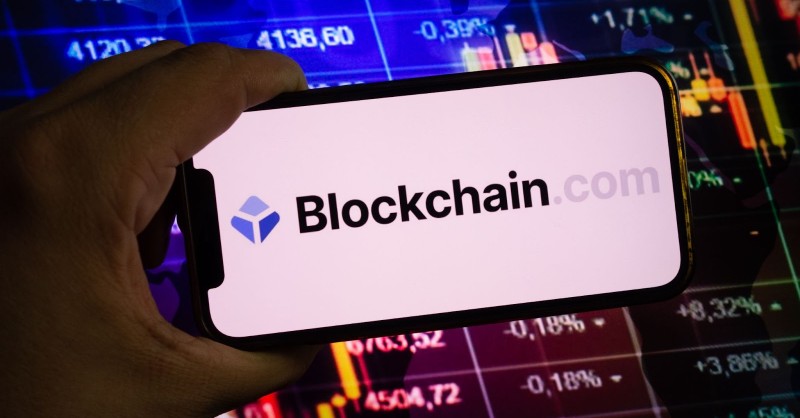

“We don’t want people to just buy and hold crypto,” Emeeka explained. “We want it to be part of everyday financial life, for payments, trade, or sending money abroad.”
To enable this, the company has launched a secure fiat-to-crypto conversion process that lets Nigerians move between naira and crypto without relying on risky peer-to-peer trades.
Blockchain.com has also introduced tokenised assets, a new feature that gives users access to tokenised U.S. stocks such as Tesla, Google, and Apple. The product allows verified users to invest in global markets directly from their phones, using local currency.
“It’s about access,” Odia said. “Africans should be able to participate in global markets as easily as anyone else.”
Recognising how central stablecoins have become to Africa’s crypto economy, accounting for about 40% of all transactions in 2024, according to Chainalysis, Blockchain.com is also expanding its stablecoin offerings. Users can now send and receive stablecoins across multiple blockchains at lower fees, tackling one of Africa’s biggest pain points: high remittance costs.
“Cross-border payments are still expensive,” Emeeka said. “Stablecoins fix that, and we’re making them easy to use.”
Education and awareness
Blockchain.com’s leadership understands that technology alone won’t drive adoption; education will. Misconceptions, scams, and volatility have long shaped Nigeria’s crypto discourse. The company aims to address that through consistent public engagement.
“Education is the foundation for sustainable growth,” said Chisom Felix, Marketing Lead for Nigeria. “We’re focusing on helping people understand both the opportunities and risks in crypto. It’s about empowering users to make informed choices.”
To that end, Blockchain.com is launching a campus education tour across four Nigerian regions, focusing on young people, the demographic driving most of the country’s digital finance evolution.
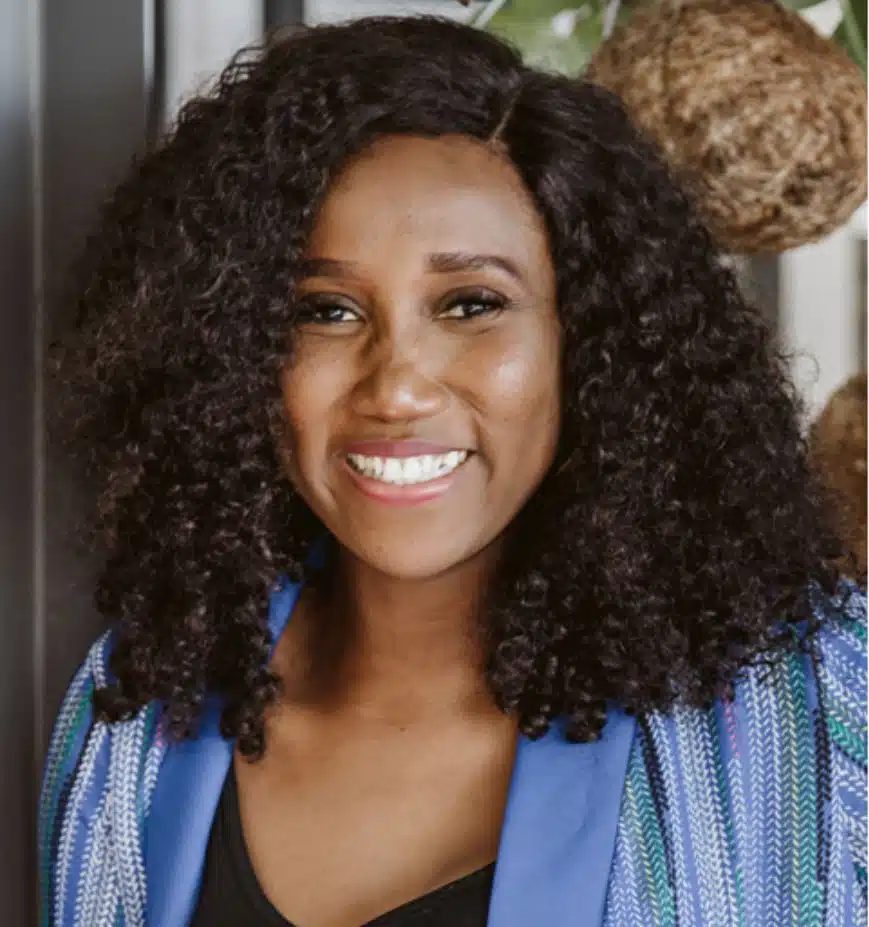

“Nigeria has one of the youngest, most digital-savvy populations in the world,” Felix noted. “They’re curious and ambitious, but they need accurate information. That’s where we come in.”
The company also sees the media as a key partner in that mission.
“The media plays a vital role in shaping narratives,” Odia said. “We want to work with journalists and tech platforms like Technext to ensure the public gets the right information about how crypto really works.”
The Long Game
As Odia pointed out, Blockchain.com’s entry into Nigeria isn’t a short-term experiment; it’s a long-term investment.
“We’ve seen so many exchanges come and go,” she said. “Blockchain.com has been around for more than a decade. We’ve survived bull markets, bear markets, and regulation shifts because we build for the long term.”
That longevity, she added, is rooted in a few core values: trust, reliability, education, and compliance. “We’re not here to chase trends,” she said. “We’re here to build something that lasts.”
The company’s next step is Ghana, where it plans to replicate the Nigerian model: local hiring, early regulatory engagement, and community-focused education. But for now, Lagos remains the heart of its African operations.

